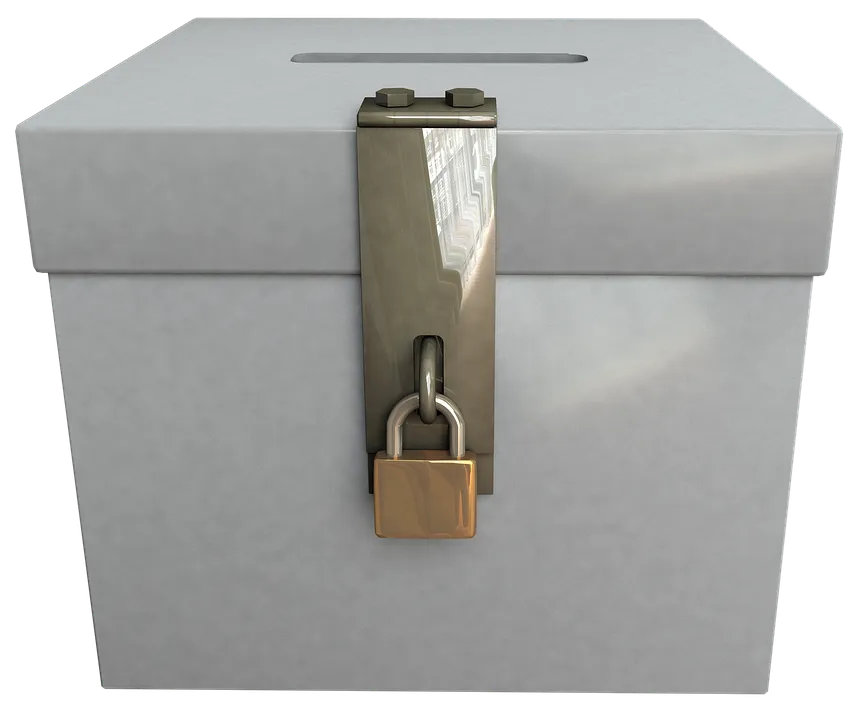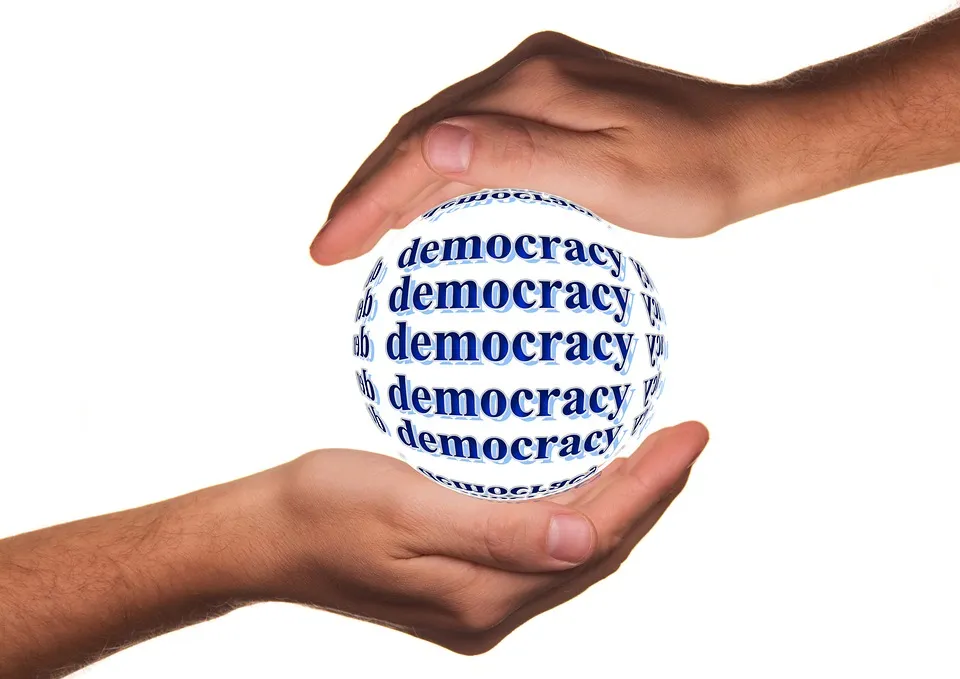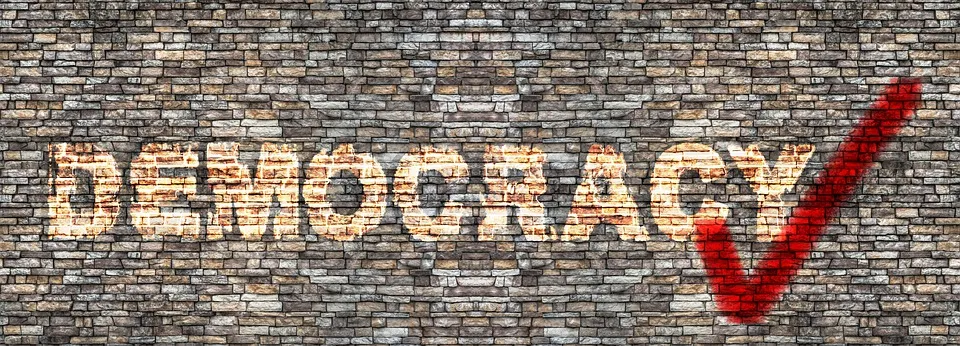Hello, community. These days there is a lot of movement around Cuba, and I have identified three trends solid enough to progressively introduce my opinion on them. I will start today with the upcoming national elections on March 26, which will then activate the mechanism to elect the President of the Republic in April. My intention is to outline how this process is legally organized, to the extent that I critically evaluate it.
Democracy
I start from the assumption that democracy is always a process in motion, with ups and downs. That's why I don't share the notion that a country is "a democracy" because this has to be validated in practice in a perhaps infinite number of dimensions and spaces. It's not a matter of modeling a system ascribed to a certain typology of political parties. I see democracy beyond the act of voting for our representatives every certain period of time, but also as the opportunity for citizens to have regular participation and impact on the direction of political, economic, social, cultural, and all kinds of processes that take place in their country. That's why the methodology for determining what is "a democracy" is controversial because it always depends on the bias of the proponent.
Can I as a citizen nominate my candidates directly? Can I vote for them without an intermediary? How much obedience do they owe me as a voter? That is, is the mandate they will have once elected imperative or "discretionary" in their favor? Do they consult me and is there coverage to hold them accountable for their performance? Can I revoke them? Can I propose laws or regulations that impact any area of society at any level of territorial organization —municipal, provincial or state, and national— or labor? What is my level of information on the state of the nation? How is the way in which information is distributed decided? Is the "quality" of my participation in democracy vitiated by my place in the economy?
These are some questions that can be asked, without forgetting the necessary discussion about the sacrosanct rights to freedom of speech, conscience, and religion. When we go with this perspective and, as I like to tell my students, land in any country in the world, we will realize that democracy is still a challenge. Let us turn now to the Cuban case, which is our focus here, and we will evaluate it from this vision, which is surely incomplete but seems to me more comprehensive than the one that appears in the reports of Freedom House and other organizations that "measure" the state of democracy.

Image by Reimund Bertrams from Pixabay
Cuban elections?
Article 80 of the Cuban Constitution of 2019 grants the following rights to Cuban citizens:
to be registered in the electoral registry;
to propose and nominate candidates;
to elect and be elected;
to participate in elections, plebiscites, referendums, popular consultations and other forms of democratic participation;
to pronounce on the accountability presented by those elected;
to revoke the mandate of those elected;
to exercise the legislative initiative and reform of the Constitution;
to perform public functions and hold public office, and
to be informed of the management of the authorities of the State.
Proposing and nominating candidates at the local level
As part of the municipal elections, we citizens directly propose and nominate candidates for delegates to the Municipal Assemblies of People's Power (AMPP in Spanish), which are the replica of the National Assembly of People's Power —ANPP in Spanish, the supreme organ of State power— in the local domain. A criticism that I share is the need to extend this right to other levels, or in its absence, greater interaction with this process at those levels. Why should it necessarily be exhausted at the municipal level? Are we not capable of being efficient and responsible in the exercise of this right at the provincial/state or national level?
Electing representatives
Cuba has a system of periodic elections every five years, in which these delegates to the AMPP, deputies/congressmen to the ANPP, the President of the Republic, and other high-level State and Government positions at the national level, and finally, provincial governors are elected.
Citizens directly elect their representatives to AMPP organized in electoral districts. These are then responsible for selecting their president and an intendant who will be in charge of control/supervision and administration, respectively. Here there could be another space for expanding direct popular participation in the electoral process, either by nominating or even electing some of these authorities.
The delegates are one of the sources that the electoral system conceives to elaborate the list of candidates for deputies to the ANPP. The coordination of this nomination process is the responsibility of the candidacy commissions at the municipal, provincial/state, and national levels made up of representatives of various social sectors (workers, peasants, women, and students). They will work with the proposals that, on the one hand, emanate from the municipal delegates —who may be represented up to 50% in the candidacy— and on the other hand, are made by large assemblies that bring together the aforementioned sectors, generally aimed at proposing citizens who stand out within their own branches or others at the different levels of territorial organization. The latter is the most discussed source. The deputies are nominated by the municipalities and must be validated to be on the ballot by the delegates to the respective AMPP.
This process that I have summarized here doesn't have a bad design by default. The main problem, what makes it not to be fully understood by the citizens, is the inability that so far its implementation has shown to connect with the great mass that integrates each sector, where a simple student or a worker linked to production has something to say about the proposals to be made in the large sectoral plenaries. This is an implementation flaw, not a design flaw, but one that vitiates the process insofar as it does not contribute to greater levels of transparency. Then, it is also truncated the rebound of the deliberation in the candidacy commissions to their constituencies.
Finally, it's the citizen who directly elects the deputies who are nominated, so that, whatever the characteristics of the nomination, there is a correspondence with the majority of the electoral systems. We elect without intermediaries our local and national representatives in the highest representative bodies of State power in those instances.

Image by Gerd Altmann from Pixabay
Electing the President of the Republic
The President is one of the many authorities that the citizens don't elect directly. However, whoever is versed in politics knows that this isn't an exclusive dynamic of the Cuban electoral system. With its distances, ours seems to correspond to the parliamentary system, in which the highest political figure of the country is elected by the legislative bodies that have been directly empowered by the citizens. There are many in the world, and it's enough to google or enter Wikipedia to identify examples.
One of the differences is that in the Cuban case, although there is the figure of the Prime Minister, whose center is the administration, the President is the highest political figure, with a power that doesn't tend to have this position in parliamentary systems (whether monarchies or republics). Then, next April 19, the deputies elected on March 26 will be constituted as the ANPP, and following a procedure described in the Electoral Law, they will elect the President of the Republic. As a controversial feature in this step, the Cuban model conceives that the candidacy is unique so in practice it's more a matter of ratifying a closed proposal than of electing.
This may change, but I insist that democracy is more than a one-day party in which people vote directly for the President. It may be the ideal form for some or many, but it doesn't define it. Even Western theorists of political science have argued that it isn't possible to conceive of a democracy where the participation of the citizenry in politics is limited exclusively to voting.
The role of the Communist Party
The Cuban Communist Party, the only one recognized in the Cuban Constitution, is defined in the latter as the "superior leading political force" of society and the State, and I mark the political character of that paternity because it's a term that, being literal, is marking a distancing with respect to the preceding approach to 2019, when it was expressed only that it was the "superior leading force", which could be interpreted as meaning that, although it was recognized before and now that the ANPP is the supreme organ of State power in Cuba, the Communist party could at some point assume its functions in administrative matters. This is a point on which there is a lot of dissent and doubts, in some cases from rational positions, but all that I do want to establish now is that this organization has no formal participation recognized in the law at any time during the electoral process.

Image by Gerd Altmann from Pixabay
Final comments
What I have tried to do here is to reflect objectively and plainly on the essence of the Cuban electoral system, commenting on the areas that in my opinion are lacking in greater development. I take my leave for today, thanking you for your patient reading, and hoping that this content has been useful to you as an introduction to the legal dimension of one of Cuba's most disputed topics in the political conversation.